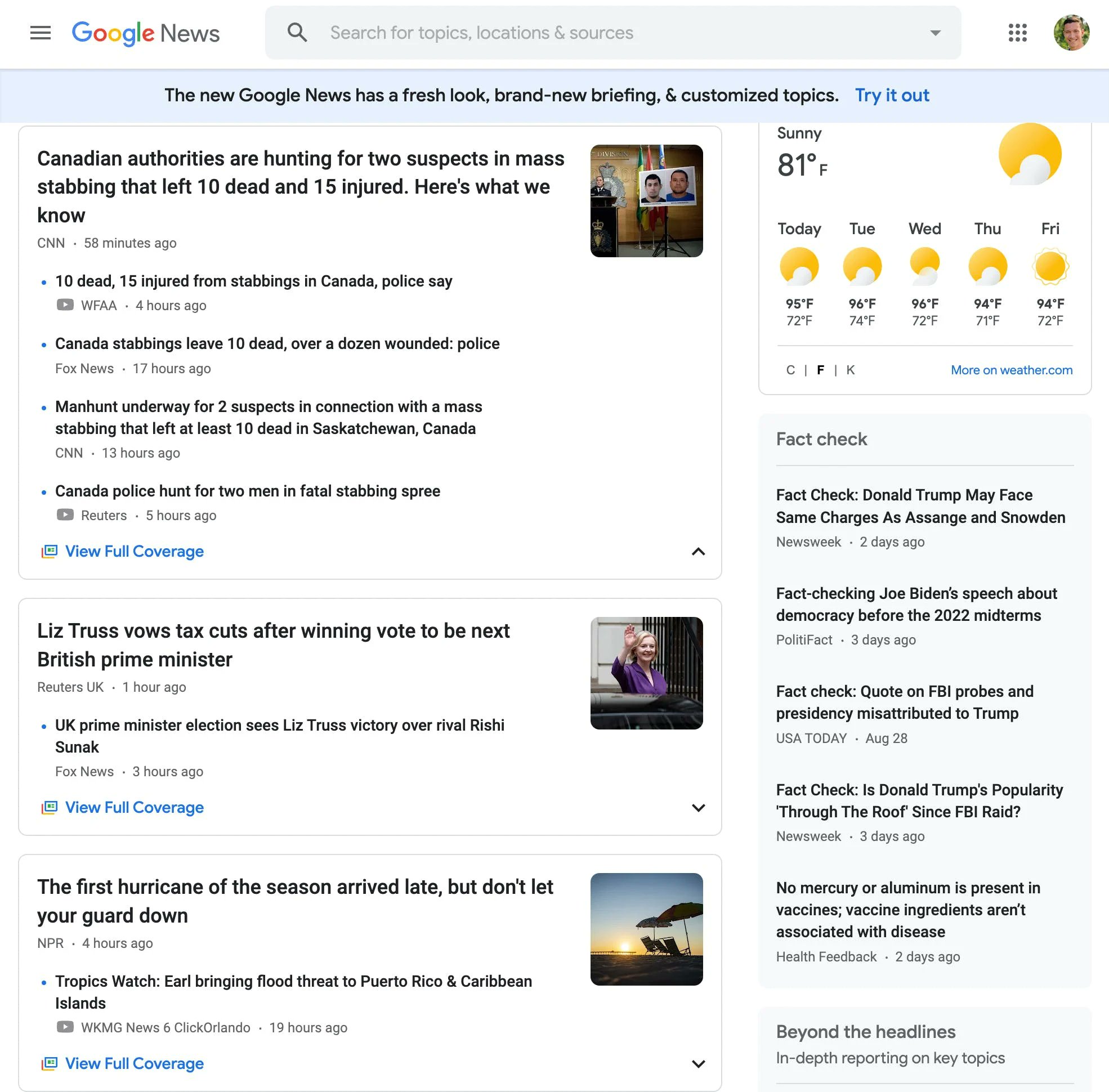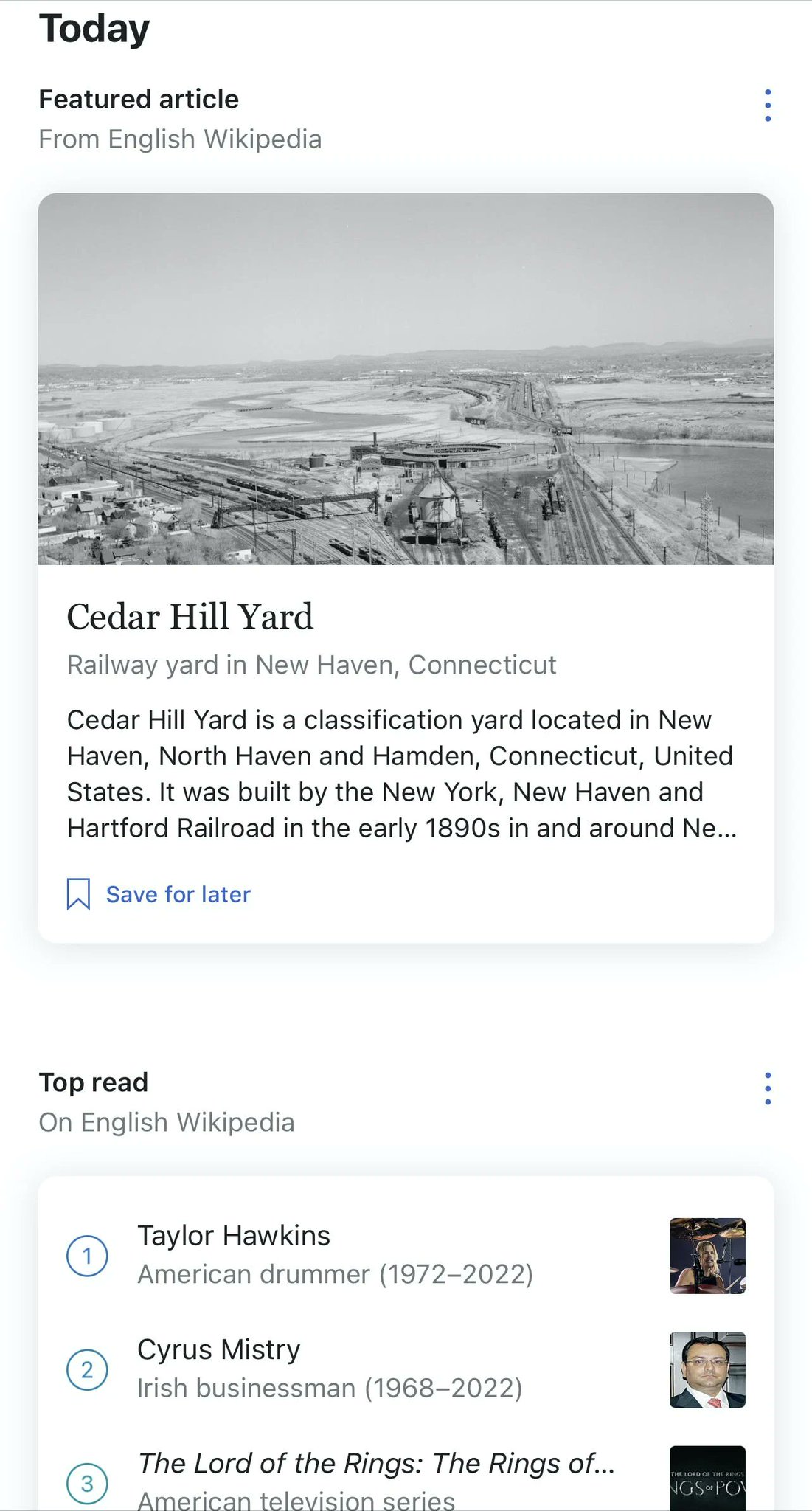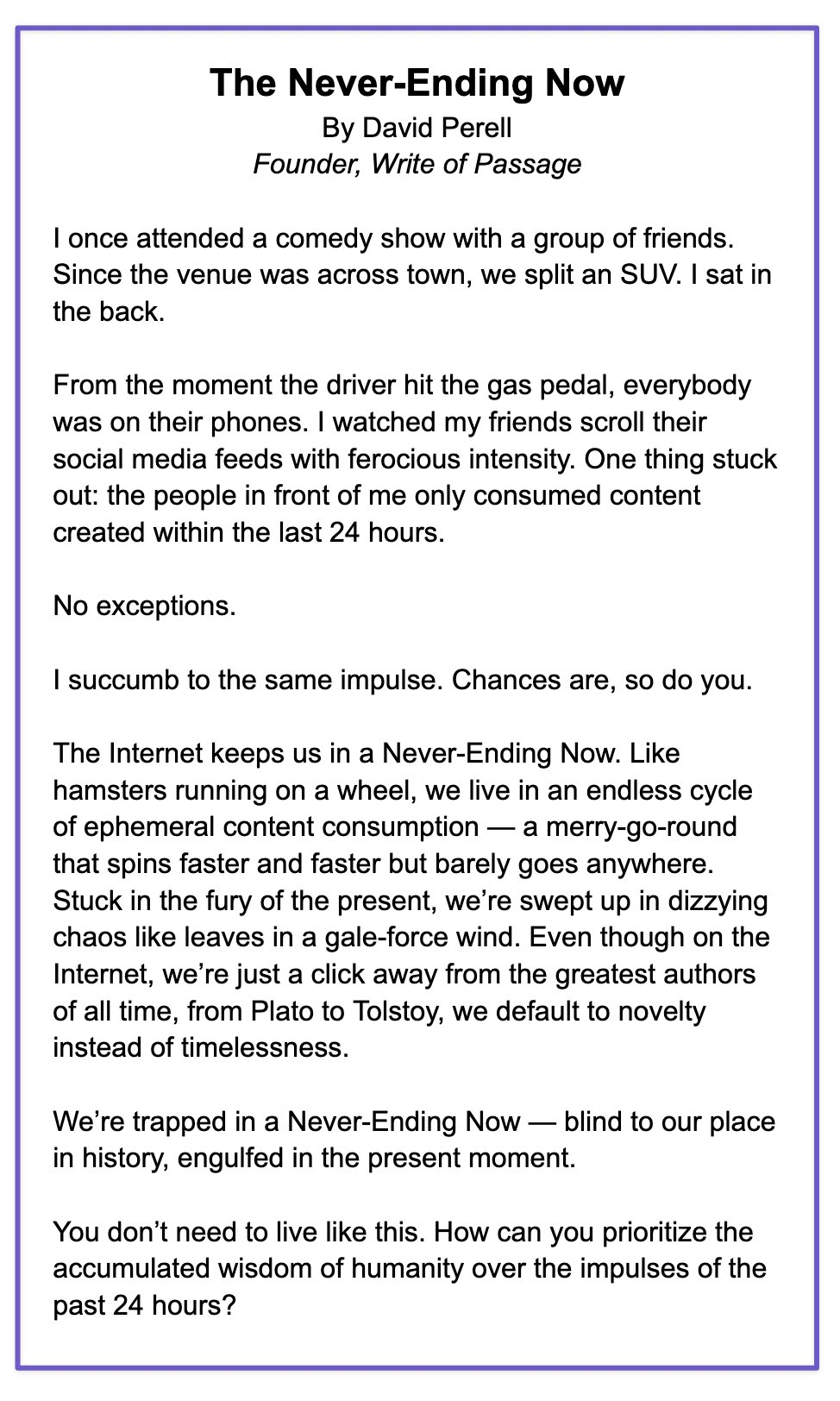Thread
The Internet's recency bias is bad for humanity. Our social media feeds prioritize recency over quality, which robs us of wisdom and makes us obsessed with the news.
How to improve the Internet:
How to improve the Internet:
Too much of the Internet functions like a news platform. Sites like Google News drop you into the day's turmoil, which inflates the importance of politics and has people more on edge than they need to be. The system breeds drama because you're forgotten if you're not in the news.
Wikipedia is the opposite. It sorts by relevance instead of recency. Opening it increases the likelihood of learning about something delightfully random. The site makes you smarter, take you to eccentric places, and rarely riles you up. More of the Internet should be like this.
As every software engineer knows, the design of a platform unconsciously pulls users towards pre-ordained outcomes. Default settings are powerful. People don't have the time to think through every decision, so if you want to permanently change behavior, change the defaults.
"Sort by recency" is the Internet's default setting. We're stuck in an endless cycle of ephemeral content consumption. On the Internet, even though we’re just a click away from the greatest authors of all time, from Plato to Tolstoy, we default to novelty instead of timelessness.
We've moved from a Space Bias to a Time Bias.
The Space Bias: Due to costs of publishing and sharing ideas, people in the 18th century were more likely to read something written in a prior decade than something from another continent. Location determined what people consumed.
The Space Bias: Due to costs of publishing and sharing ideas, people in the 18th century were more likely to read something written in a prior decade than something from another continent. Location determined what people consumed.
The Time Bias: Now, time has a stronger influence on what people consume. No matter where you live, your online experience is basically the same. Most of what you see was published in the past 48 hours. Most of that information is based on what happened in the world recently.
Time has replaced space as the governing force of our information environment. We're locked in time by the Internet's default settings. In this world, creators follow the motto of "publish or perish" which encourages them to crank out consistent content, even if it's rushed.
The information we consume would be much higher quality if the Internet didn't have such a recency bias.
Instead of dictating our experience, time should serve as a filter for quality. It should block the junk, so only quality persists. In some ways, it already does. If you're reading something from the 19th century, it's probably pretty good (even if it's harder to read).
The choice is yours. If you want to consume recently published information, be my guest. I still do it all the time. The problem is that people don't see how much their lives are shaped by this Time Bias, given how much they're on the Internet.
How can we re-design the Internet?
How can we re-design the Internet?


